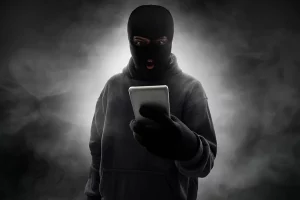
Signs He Is Stalking You On Social
Excessive Likes and Comments:
One of the telltale signs that someone might be stalking you on social media is if they consistently like and comment on your posts, even ones from weeks or months ago.
This behavior goes beyond casual engagement and may indicate a deeper interest in your online activity.
Frequent Profile Visits:
If you notice that a particular person is frequently visiting your profile or viewing your stories, it could be a sign that they’re keeping tabs on you.
This behavior suggests a level of monitoring beyond what is typical among acquaintances or friends.
Unusual Messages or Requests:
Be wary of receiving unsolicited messages or friend requests from someone you barely know or have no connection with.
This could be a tactic used by a stalker to gain access to your personal information or initiate unwanted contact.
Following Your Every Move:
Stalkers may demonstrate an obsessive interest in your life by following your every move on social media platforms.
They might reference obscure details from your posts or activities, indicating that they’ve been closely monitoring your online presence.
Creating Fake Profiles:
In more extreme cases, a stalker might go as far as creating fake profiles to keep tabs on you without your knowledge.
They may use these accounts to gather information about you or to interact with you in deceptive ways.
Specific Signs He Is Stalking You
Excessive Direct Communication
Frequent Messaging or Commenting on Your Posts
Experiencing a barrage of messages and comments is a clear indication of excessive communication.
If your inbox is constantly flooded with messages or your social media posts are bombarded with comments, it’s crucial to recognize this as a potential sign of stalking.
Unwanted or Obsessive Messages
Unwanted and obsessive messages often go beyond normal interaction.
If you find yourself receiving intrusive or overly personal messages that make you uncomfortable, it’s essential to acknowledge the gravity of the situation and take appropriate measures.
Tracking Your Location
Mentioning Your Whereabouts Without You Disclosing Them
If someone consistently mentions your exact location or activities without you sharing this information, it raises concerns about potential stalking. Pay attention to unsolicited knowledge about your movements.
Expressing Knowledge of Your Activities Through Social Media Updates
Stalkers may use social media updates to track your activities indirectly. If someone appears to know more about your life than what you’ve shared online, it’s crucial to be vigilant and consider your digital security.
Creating Fake Profiles
Impersonating Someone Else to Gain Access to Your Content
Creating fake profiles is a deceptive tactic used by stalkers to infiltrate your online world. If you encounter profiles pretending to be someone else, be cautious and take steps to protect your privacy.
Sending Friend Requests from Multiple Accounts
Stalkers may employ multiple accounts to send friend requests, increasing the likelihood of accessing your personal information.
If you receive friend requests from unfamiliar profiles, exercise caution and investigate before accepting.
General Signs of Social Media Stalking
Increased online presence
Social media stalking often manifests through an individual’s heightened online presence, marked by specific behaviors indicative of monitoring.
Frequent liking and commenting on your posts
Witnessing a surge in likes and comments on your social media content, especially from someone who was previously less active, may be a telltale sign of increased attention.
Suddenly following or friending you
The abrupt act of following or friending can be a clear signal of social media stalking. This unexpected connection could indicate a newfound interest in your online life.
Engagement with old posts
Another facet of social media stalking involves delving into an individual’s past, demonstrating a deeper level of observation.
Liking or commenting on posts from months or years ago
Stalkers often reveal their activities by engaging with content from the distant past, showcasing a thorough exploration of your social media history.
Monitoring your online activity
The essence of social media stalking lies in meticulous observation, extending beyond mere engagement to active tracking of an individual’s digital movements.
Noticing that they are aware of your recent interactions
A keen awareness of your recent online engagements suggests a vigilant eye on your activities, hinting at a deliberate effort to stay updated.
Referencing specific details from your posts
Stalkers may go beyond generic interactions, referencing specific details from your posts in conversations, underscoring their meticulous scrutiny.
Behavioral Changes
Behavioral changes can manifest in various ways, both online and offline, raising concerns about privacy and personal boundaries.
Changes in Online Behavior
Online behavior shifts may indicate underlying motives or obsessions.
Altering Privacy Settings
Individuals may exhibit a sudden interest in accessing your content by tweaking their privacy settings, raising red flags about their intentions. Watch out for unexpected changes in who can view your online activities.
Unusual Patterns of Online Activity
Abnormalities in online behavior, such as increased monitoring or unusual interaction patterns, could suggest a shift in someone’s focus or intentions.
Recognizing and addressing these anomalies is crucial for maintaining a secure online presence.
Offline Signs
Offline signs complement online indicators, offering a more comprehensive view of potential concerns.
Frequent Coincidental Encounters in Real Life
Repeated and seemingly coincidental encounters offline may indicate a deliberate effort to monitor your activities. Understanding the line between chance and intentionality is vital for personal safety.
Unexplained Gifts or Messages Outside of Social Media
Receiving unexpected gifts or messages outside of social media may signal a desire for a more personal connection. Evaluate these gestures cautiously, as they may indicate a deeper interest in your life.

Emotional and Psychological Impact
Feeling Uneasy or Unsafe
Trusting Your Instincts
Individuals often experience a pervasive sense of unease or insecurity when faced with challenging situations.
Trusting your instincts becomes paramount in navigating these feelings, relying on an innate sense of self-preservation.
Monitoring Your Own Emotional Reactions
Vigilance over personal emotional reactions is essential to understanding the subtle nuances of discomfort.
Recognizing and acknowledging these reactions is the first step toward addressing and mitigating the emotional impact.
Impact on Mental Health
Increased Anxiety or Stress
The emotional toll of feeling uneasy or unsafe can manifest as heightened anxiety and stress levels. This emotional burden may permeate various aspects of daily life, impacting overall well-being.
Difficulty Concentrating or Sleeping
The psychological impact extends to cognitive functions, leading to difficulties in concentration and sleep disturbances. These challenges further contribute to the overall strain on mental health.
Legal Implications and Protection
Understanding the legal definitions of stalking
Stalking is a serious offense with legal consequences that vary by jurisdiction. Comprehending the legal definitions is crucial for recognizing and addressing such behavior promptly.
Key terms include harassment, unwanted attention, and persistent pursuit, shaping the foundation of legal frameworks against stalking.
Reporting to social media platforms
When faced with online stalking, individuals can take proactive steps to enhance their digital security.
Blocking and restricting access
Effective measures involve blocking the perpetrator and restricting their access to personal information, creating a virtual barrier against unwanted intrusion.
Utilizing privacy settings
Employing robust privacy settings adds an extra layer of protection, limiting the potential for personal information exposure and deterring the stalker’s online activities.
Involving law enforcement if necessary
Should online measures prove insufficient, engaging law enforcement becomes imperative for personal safety and legal recourse.
Documenting incidents and collecting evidence
Thorough documentation of stalking incidents is pivotal. Victims should compile evidence such as screenshots, messages, and any other relevant information, creating a compelling case for legal intervention.
Obtaining a restraining order if required
In extreme cases, pursuing a restraining order is a legal avenue to establish protection. This court order can mandate the stalker to maintain a specific distance, providing a legal barrier against further harassment.
Understanding Social Media Stalking
Definition of Social Media Stalking
Social media stalking refers to the intrusive act of consistently monitoring and gathering information about individuals through their online profiles on platforms like Facebook, Instagram, or Twitter.
This covert observation involves examining someone’s posts, photos, and interactions without their knowledge or consent.
Motives Behind Social Media Stalking
Individuals engage in social media stalking for various motives, driven by curiosity, jealousy, or even malicious intent. Curiosity may lead someone to seek information about a person’s life, relationships, or activities.
Jealousy often fuels the desire to monitor the success or happiness of others. In some cases, malicious intent may drive stalking, seeking to harm the individual emotionally or socially.
Impact of Social Media Stalking on Victims
The impact of social media stalking on victims can be profound, leading to emotional distress, invasion of privacy, and even offline consequences.
Victims may experience heightened anxiety, fear, or paranoia as they realize their online activities are under scrutiny.
The invasion of privacy disrupts their sense of security, and in extreme cases, stalking can escalate to offline harassment, affecting the victim’s well-being and daily life.
Signs of Social Media Stalking
Obsessive Monitoring
Frequent Profile Checks
Regularly checking your online presence
Monitoring your social media activity consistently
Vigilant tracking of your virtual footprint
Increased Engagement
Notable surge in likes, comments, or reactions
Unusual spike in online interactions with your content
Elevated engagement beyond the typical frequency
Invasive Interactions
Persistent Comments
Continual commenting on your posts or photos
Unrelenting presence in the comment section
Excessive and unwarranted commentary on your updates
Excessive Direct Messaging
Flood of direct messages beyond normal communication
Overwhelming volume of private messages
Intrusive and frequent attempts to connect privately
Mimicking Behavior
Imitating Content Engagement
Liking or sharing content similar to yours
Replicating your online preferences
Mirroring your digital behavior and interests
Networking Through Mutual Connections
Following or friending shared acquaintances
Connecting with mutual friends to access your profile
Expanding connections to gain insight into your life
Information Gathering
Probing Personal Questions
Inquiring about your life based on social media activity
Asking detailed and probing questions about your experiences
Seeking personal information through online interactions
Referencing Obscure Details
Citing specific details from your past posts or interactions
Bringing up obscure and personal information
Recalling and referencing your digital history
Boundary Violations
Ignoring Cease Requests
Disregarding requests to cease contact or interaction
Persisting despite explicit boundaries set by you
Failing to respect your expressed need for distance
Multiple Platform Connection Attempts
Trying to reconnect on various social media platforms
Persistently seeking connection after being blocked
Attempting to breach boundaries across multiple digital channels

Psychological Impact of Social Media Stalking
Fear and Anxiety
Feeling constantly watched or monitored
Individuals subjected to social media stalking often experience an overwhelming sense of being under constant surveillance.
The perception of being observed can evoke heightened anxiety, leading to a sense of unease in online spaces.
Fear of offline encounters based on online interactions
Social media stalking intensifies apprehensions about potential real-world encounters arising from digital interactions.
This fear may manifest as reluctance to engage in offline activities or reluctance to attend events due to concerns related to online connections.
Invasion of Privacy
Loss of control over personal information
Stalking on social media erodes the individual’s control over their personal information, creating a profound sense of vulnerability.
The loss of autonomy over one’s digital footprint contributes to a pervasive feeling of helplessness.
Feeling exposed or vulnerable
The invasive nature of social media stalking exposes individuals to a heightened state of vulnerability.
The perceived lack of protection amplifies emotional distress, as the individual grapples with a sense of being laid bare for scrutiny.
Emotional Distress
Impact on mental health, such as depression or paranoia
Social media stalking can have profound implications for mental health, potentially leading to conditions like depression and paranoia.
The persistent feeling of being monitored takes a toll on emotional well-being.
Difficulty trusting others, even in online interactions
Individuals subjected to social media stalking may develop trust issues, extending beyond the online realm.
This difficulty in trusting others can hinder healthy online interactions and contribute to a sense of social isolation.
How to Deal with Social Media Stalking
Social media stalking can be a distressing experience, but taking proactive steps can help protect your well-being and privacy.
Document and Report
Keep Detailed Records for Evidence
Log and save all interactions with the stalker.
Record dates, times, and any disturbing messages.
Report Stalking Behavior to the Platform and Authorities
Notify the social media platform about the issue.
If necessary, involve law enforcement to address the harassment.
Adjust Privacy Settings
Limit Profile and Post Visibility
Customize privacy settings to control who can access your profile and posts.
Utilize features that restrict visibility to a select audience.
Block or Unfriend the Stalker
Take decisive action by blocking or unfriending the individual.
Create a virtual barrier to prevent further unwanted interactions.
Seek Support
Talk to Trusted Individuals
Share your experience with friends and family.
Seek emotional support to cope with the stress.
Join Online Support Groups
Engage with communities addressing online harassment.
Participate in discussions with fellow victims for shared understanding.
Understanding Online Stalking
Definition and Legal Implications
Online stalking, also known as cyberstalking, involves the persistent tracking, monitoring, and harassment of individuals through digital means.
It carries serious legal consequences, as it violates privacy laws and can lead to charges of harassment or even stalking in some jurisdictions.
Types of Online Stalking Behaviors
Passive Stalking:
This involves observing the victim’s online activities without direct interaction, such as monitoring their social media profiles, browsing history, or location data.
Active Stalking:
In contrast, active stalking includes direct engagement with the victim, such as sending unsolicited messages, threats, or creating fake profiles to deceive or intimidate.
Impact on Victims’ Mental Health and Well-being
Online stalking can have profound effects on victims, causing anxiety, depression, and paranoia. It undermines their sense of safety and privacy, leading to feelings of vulnerability and distress.
Victims may experience difficulties in sleeping, concentrating, or engaging in daily activities, as they constantly fear for their safety and well-being.
Signs He Is Stalking You On Social Media
Monitoring Your Activities
Frequent Engagement:
Regularly liking and commenting on your posts signals constant monitoring.
Swift Post Views:
Immediate views of your stories and posts reveal a keen interest.
Backtracking Engagement:
Reacting to old content demonstrates a thorough examination of your profile.
Excessive Engagement
Unsolicited Communication:
Sending unwarranted messages or friend requests indicates over-involvement.
Digging into History:
Liking or commenting on posts from the past showcases an intense scrutiny.
Persistent Tagging:
Consistently tagging or mentioning you signifies an intrusive level of attention.
Gathering Information
Online Details in Conversation:
Incorporating specifics from your online life into discussions suggests meticulous observation.
Inquisitive about Virtual Events:
Asking about experiences shared exclusively online hints at detailed tracking.
Knowing Obscure Facts:
Bringing up information not publicly disclosed reflects a deep investigation.
Creating Fake Profiles
Covert Connections:
Following or friending through fake accounts conceals their true identity.
Multiple Requests:
Sending friend requests from multiple profiles amplifies the attempt at secrecy.
Anonymous Interaction:
Engaging through fabricated identities allows them to interact discreetly.
Tracking Your Location
Uninformed Comments:
Mentioning your whereabouts without being informed indicates unwarranted surveillance.
Check-In Inquiries:
Asking about your location based on check-ins suggests an intrusive interest.
Unexpected Appearances:
Showing up at locations you’ve shared online without an invitation implies unwarranted tracking.
Reacting Aggressively
Online Hostility:
Displaying aggression or threats in online interactions raises concerns about their behavior.
Negative Responses:
Reacting negatively to interactions with others on your profile signals possessiveness.
Jealousy Signs:
Demonstrating jealousy through online behavior indicates an unhealthy level of attachment.
Psychological Aspects of Online Stalking
Motivations behind online stalking behavior
Desire for control and power
Predatory behavior
Manipulative tendencies
Intrusive control
Obsession and fixation on the victim
Unhealthy preoccupation
Compulsive thoughts
Stalking as a fixation outlet
Intimacy-seeking behavior
Misguided pursuit of connection
Emotional attachment
Online spaces as false intimacy platforms
Impact on victims’ mental health
Anxiety and fear
Constant unease
Heightened stress levels
Fear of physical harm
Loss of privacy and safety
Invasion of personal space
Erosion of digital boundaries
Fear of exposure
Psychological distress and trauma
Emotional turmoil
Post-traumatic stress
Long-lasting psychological scars
Coping strategies for victims
Setting strict privacy settings on social media platforms
Digital self-protection
Restricting access to personal information
Fortifying online boundaries
Blocking or restricting the stalker’s access
Immediate threat mitigation
Creating a virtual barrier
Disrupting the stalking cycle
Seeking support from friends, family, or professionals
Building a strong support network
Emotional validation
Engaging law enforcement and mental health professionals
Legal Considerations and Resources
Overview of Cyberstalking Laws
Definition and Legal Consequences
In the realm of cyberstalking, understanding the legal landscape is paramount. Cyberstalking laws delineate the prohibited activities that constitute online harassment, ensuring protection for victims.
The legal consequences for offenders can range from restraining orders and fines to imprisonment, reinforcing the severity of such actions. Signs He Is Stalking You On Social Media.
Reporting Procedures and Available Resources
Navigating the complexities of cyberstalking necessitates familiarity with reporting procedures and available resources. Signs He Is Stalking You On Social Media.
Reporting platforms and law enforcement agencies play a pivotal role in addressing these issues promptly.
Victims can access a plethora of resources, including helplines, counseling services, and legal aid, fostering a comprehensive support network.
Steps to Take if You Suspect Online Stalking
Documenting Evidence of Stalking Behavior
When grappling with suspicions of online stalking, meticulous documentation becomes a potent tool.
Capturing screenshots, saving messages, and logging instances of harassment empowers victims with tangible proof. This evidence serves as a cornerstone when engaging with authorities and seeking legal recourse.
Reporting the Behavior to the Appropriate Authorities
Swift and precise action is imperative when facing online stalking. Reporting the perpetrator’s actions to the appropriate authorities initiates an investigative process.
Timely reporting to law enforcement or relevant online platforms aids in curbing the harassment and holding the offender accountable.
Seeking Legal Protection and Support Services
For victims, seeking legal protection and support services is a crucial step towards reclaiming control. Obtaining a restraining order can provide a legal barrier against the stalker.
Simultaneously, reaching out to support services offers emotional assistance, guiding individuals through the legal intricacies while reinforcing their resilience.

FAQs
What are the signs that indicate someone is stalking me on social media?
Signs include frequent likes, comments, or shares on your posts, sudden appearance in your followers list, and extensive activity on your older posts. Signs He Is Stalking You On Social Media.
How can I tell if someone is actively monitoring my social media activities?
Look for unusual behavior such as appearing offline but still engaging with your content, mentioning specific details from your online posts, or referencing conversations you’ve had online without your initiation. Signs He Is Stalking You On Social Media.
Are there any red flags that suggest someone is obsessively checking my social media profiles?
Yes, red flags include excessive messaging, persistent attempts to engage even after being ignored, and monitoring your online status closely. Signs He Is Stalking You On Social Media.
Should I be concerned if someone consistently views all my stories and posts on social media?
It’s important to assess the context and frequency. If the behavior feels intrusive or uncomfortable, it may be a cause for concern and warrant setting boundaries or blocking the individual. Signs He Is Stalking You On Social Media.
How can I protect myself from someone stalking me on social media?
Utilize privacy settings to limit what others can see, be cautious about accepting friend requests from unknown individuals, and consider blocking or reporting anyone exhibiting concerning behavior. Signs He Is Stalking You On Social Media.
What should I do if I suspect someone is stalking me on social media?
Trust your instincts and take action to protect your online safety. Signs He Is Stalking You On Social Media.
Document any concerning interactions, consider talking to a trusted friend or seeking support from a professional, and report the individual to the platform if necessary.
Is it common for individuals to stalk others on social media platforms?
Unfortunately, yes. With the widespread use of social media, stalking behaviors have become more prevalent. It’s essential to remain vigilant and proactive in managing your online presence. Signs He Is Stalking You On Social Media
Can stalking on social media escalate into real-life harassment or danger?
While not all cases escalate, it’s crucial to recognize the potential for danger.
Stalking behaviors, whether online or offline, can escalate over time, and it’s important to address them early on to prevent any further harm. Signs He Is Stalking You On Social Media
What legal actions can I take if someone is stalking me on social media?
Depending on the severity of the situation, you may consider seeking a restraining order or contacting law enforcement. Signs He Is Stalking You On Social Media.
Documenting the stalking behavior and seeking guidance from legal professionals can help determine the best course of action.
Are there support resources available for individuals experiencing social media stalking?
Yes, there are numerous resources available, including online support groups, hotlines, and advocacy organizations dedicated to helping individuals navigate and cope with the effects of stalking on social media. Signs He Is Stalking You On Social Media.
Conclusion
In conclusion, recognizing signs he is stalking you on social media is crucial for maintaining your safety and well-being in the digital realm.
From excessive liking and commenting on old posts to frequent profile visits and suspicious behavior, these indicators can serve as red flags signaling potential online harassment or invasion of privacy. Signs He Is Stalking You On Social Media.
By staying vigilant and informed about such behaviors, individuals can take proactive measures to protect themselves, whether by adjusting their privacy settings, blocking suspicious accounts, or seeking support from trusted friends, family, or authorities when necessary. Signs He Is Stalking You On Social Media.
Ultimately, understanding these signs empowers individuals to navigate the online landscape with confidence and assert control over their digital presence. Signs He Is Stalking You On Social Media.

